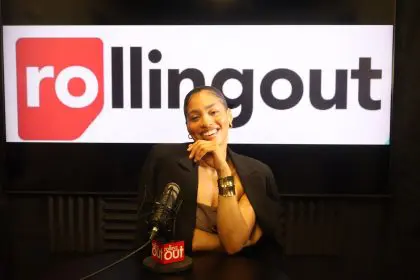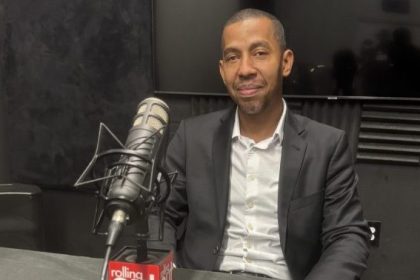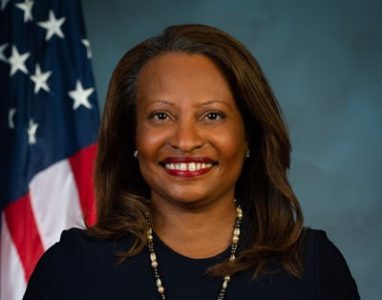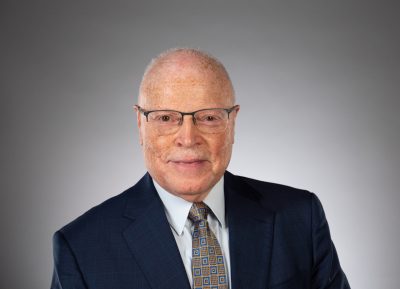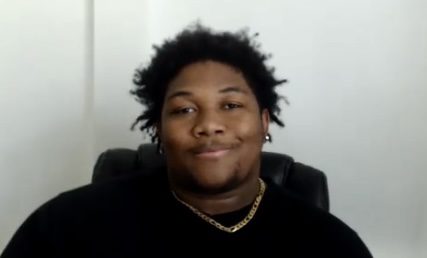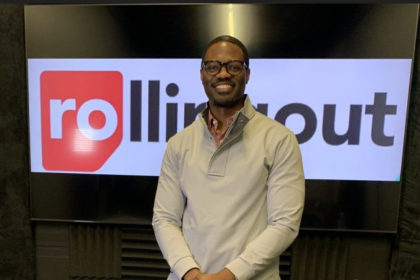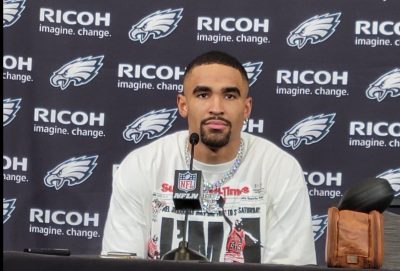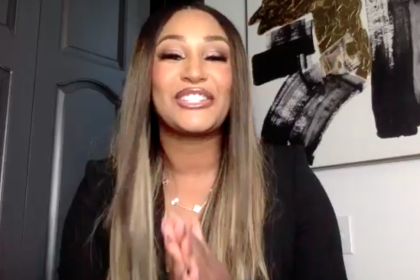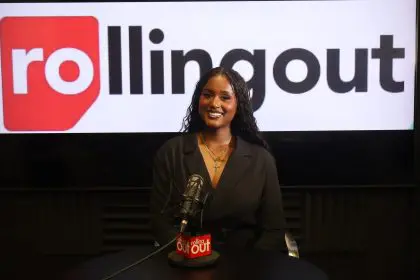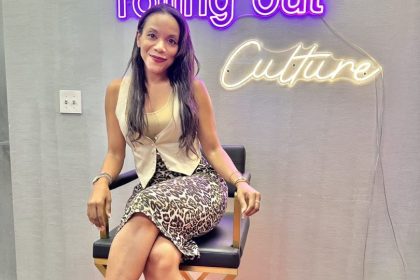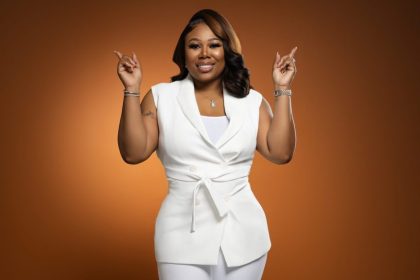Alabama Senator Robert Stewart is a young leader in his hometown of Selma.
Recently, he caught up with rolling out to discuss the road to his present seat and the future of the political landscape in Alabama.
What are you doing to make sure the Black community has representation and a ‘Seat at the Table’ inside of the body that you represent us in?
That’s a great question. I’m very proud to be African American, to be Black, a descendant of chattel slavery and great-grandparents who were sharecroppers. It means understanding the sacrifices our elders and ancestors did is not lost on me. That my ancestors and elders in our community built a life for me to be able to have the opportunities I’ve been able to have.
That means carrying the voices with me, their interests when I’m in the State House, when I’m in these committee meetings, always thinking about them, how would this legislation affect them, the trajectory of their lives and future.
What are you saying to those members at the table who are not traditionally thinking about the Black community and the opportunities we should be demanding?
Much to my surprise, there have been some unexpected allies I have found. For me, I’m always having my people in mind.
For example, I serve on the health care committee, so I represent a rural community. There was legislation that came out of the committee that would help solve the rural physician shortage, as well. It’s dealt with lessening the mandates for residents, and it incentivized international doctors to come in.
One of my comments was that I agree with solving the doctor, physician shortage. In theory, I support the legislation. I voted for the bill, but the thing is, we need to discover ways to get to the root cause.
“Doctors are built in kindergarten.” That was my response, so we need to make sure we have equitable public schools so our children actually have a shot at the beginning. Until we saw and provided a remedy for those solutions, we’ll never reach our full potential as a state until all children have opportunities. All people. All communities have opportunities and a fair shot. That’s been a driving force throughout my campaign, even before I became a public official. It’s ensuring that everyone has opportunity.
When young brothers and sisters in leadership positions see and identify with you, what are you telling them?
It’s important to take advantage of opportunities, always be vigilant, and look out for opportunities, but I did leave.
I haven’t always been in Alabama. Particularly Selma has always been my home, but what I’m telling young people is, “Your home is your launching pad. There’s nobody that’s going to love you like the community that you come from. Use that to improve outcomes in your life.”
For example, I moved back home five years ago to work as a Congressional staffer. After living in Atlanta, I worked in the Selma office of our United States Congresswoman, who is also from our hometown. That got me work in D.C.
I was able to spend a couple of years in D.C., and I still work in D.C. I work remotely for this public interest consumer advocacy group. I’ve been with them since 2020, and then the pandemic happened, so I was like, “Well. What better time to run for office now, since we’re working remotely?”
I came back home and ran for office. So, just don’t discount your experiences coming from a rural community. You can parlay those into other opportunities you could not even have imagined.
What do you share with young people about why they should be a staffer or work on the Hill?
I think exposure is very important. Learning the language, getting an understanding of how government works, the legislative process, the importance of knowing what agencies exist. Elizabeth Warren once said that policy is personnel. So, you can have all the policies and laws in the world and on the books that helps improve our lives, but you have to have the right people leading that charge, making sure those policies are carried out.
That’s the importance. I cannot express how important exposure is, and being involved in your community. I had a great childhood growing up in Selma. My childhood was rooted in volunteerism and so I came back home with an obligation to care and continue the legacy.
How would you challenge students at Alabama State or Stillman to embrace change and technology?
Artificial intelligence is here to stay. There are downsides to that. There are studies that show this technology can be very discriminatory as well, but I do think change is inevitable, and if we don’t embrace it, then we will be left behind.
I think it’s important that we get back to the basics as well. I’m a graduate of Tuskegee University. We started with an emphasis on trades. I believe there is not enough focus on trades and those basic skills. How do we incorporate technology and developments to move forward to a brighter future?
How do you say to young brothers and sisters they need a skill set, something I call professional currency, so they can always have a seat at the table?
My grandma always says, “You have to read the tea leaves.” Just being aware of what’s coming, being watchful and vigilant about news articles. We need to use social media as our platform. There are all sorts of untraditional media like rolling out. It’s important to embrace media to get the information and tools we need, so we can make the most informed decisions.
Looking at career outlooks, looking at what businesses are profitable or what are their needs? How can we best provide the needs or address needs that our communities are lacking -and make a profit off of it but not exploit? I do want to say that it’s important, but provide a need or a service that’s essential.
Why should a person consider moving to Alabama?
There’s no place like Alabama. In my district, in particular, I like to coin it as the “epicenter of southern hospitality.” You will not find better people, better food, better communities, good restaurants, it’s affordable. There are real opportunities for rural communities to be developed at this time.
We have to tell you, “Hey? Do you want a family? This a good place to raise your children. We do have one of the most innovative and top-performing preschools in the nation, so that is important to consider.”
It’s also important to consider our economy. We are passing legislation and incentivizing corporations to move here. I co-sponsored legislation called the Alabama Game Plan, and we are providing oversight. This legislation will provide oversight to businesses that hire Alabamans, and they have to be full-time employers and make well-above minimum wage.
So, we’re trying to create policies that are economically friendly, as well as family-friendly and business-friendly. There are all sorts of incentives to support business expansion and business development here in the state. These are things we need to consider. The weather of course. We don’t have brutal winters. A lot of people are trying to get rid of those.
In regards to location demographics, we are close to major metropolitan areas. If you want to drive to New Orleans, you can do that, or Nashville, Atlanta, if you don’t want the hustling and bustle of the big city. Alabama is the place to go. It is the best-kept secret.
If you were to give a speech to Alabama State or Tuskegee, what would the title of your speech be? What would be the three things you’d want them to do to make a difference in the world?
Wow! That is such a packed question.
I always build my speeches with three points. The title of my speech is, “It will be OK.” I’m not saying we don’t have adversity, but you need to have the grit and determination to overcome that adversity. That’s point one: There will be adversity, but you can overcome it.
Point number two is to make sure you have a strong spiritual practice and be rooted. Have a strong sense of self because that’s how you’re going to have to navigate through these difficult times.
Point number three is that you are the answer. Zora Neale Hurston, and she’s an Alabama native from the Harlem Renaissance, said in her book Their Eyes Were Watching God that there are years that ask questions, but there are years that answer them and you are the answer to what we’re waiting on.

